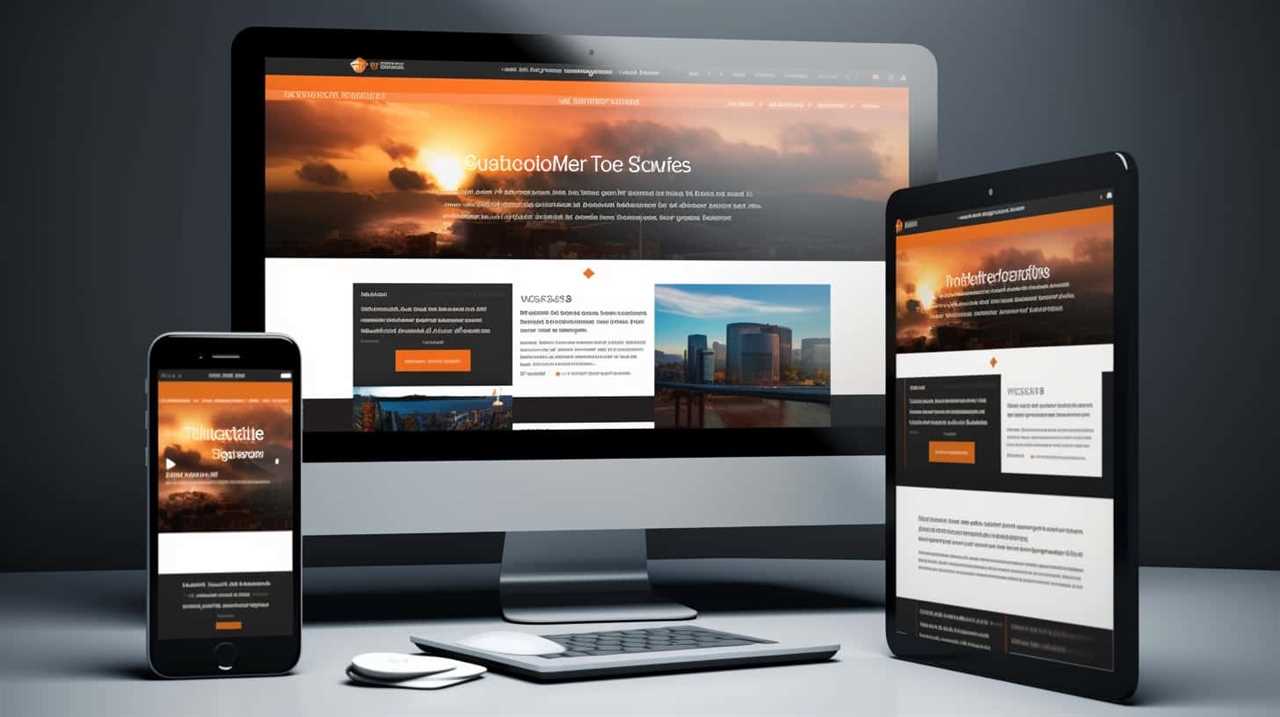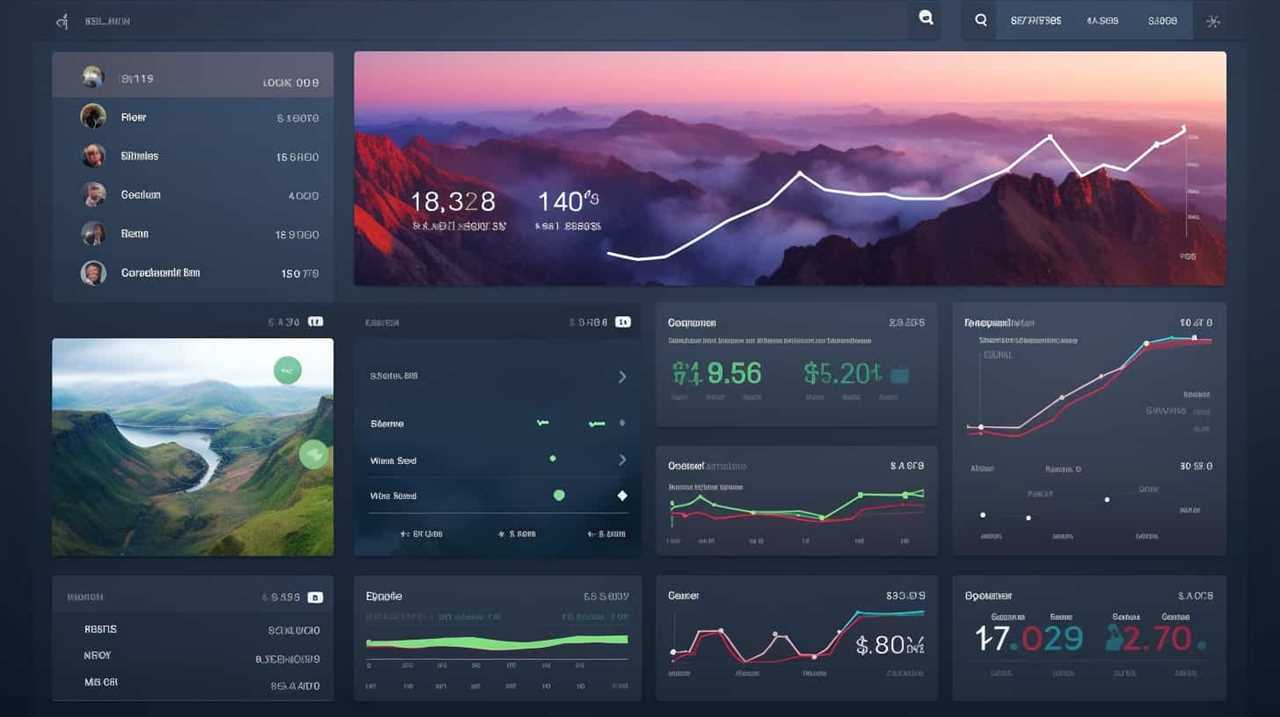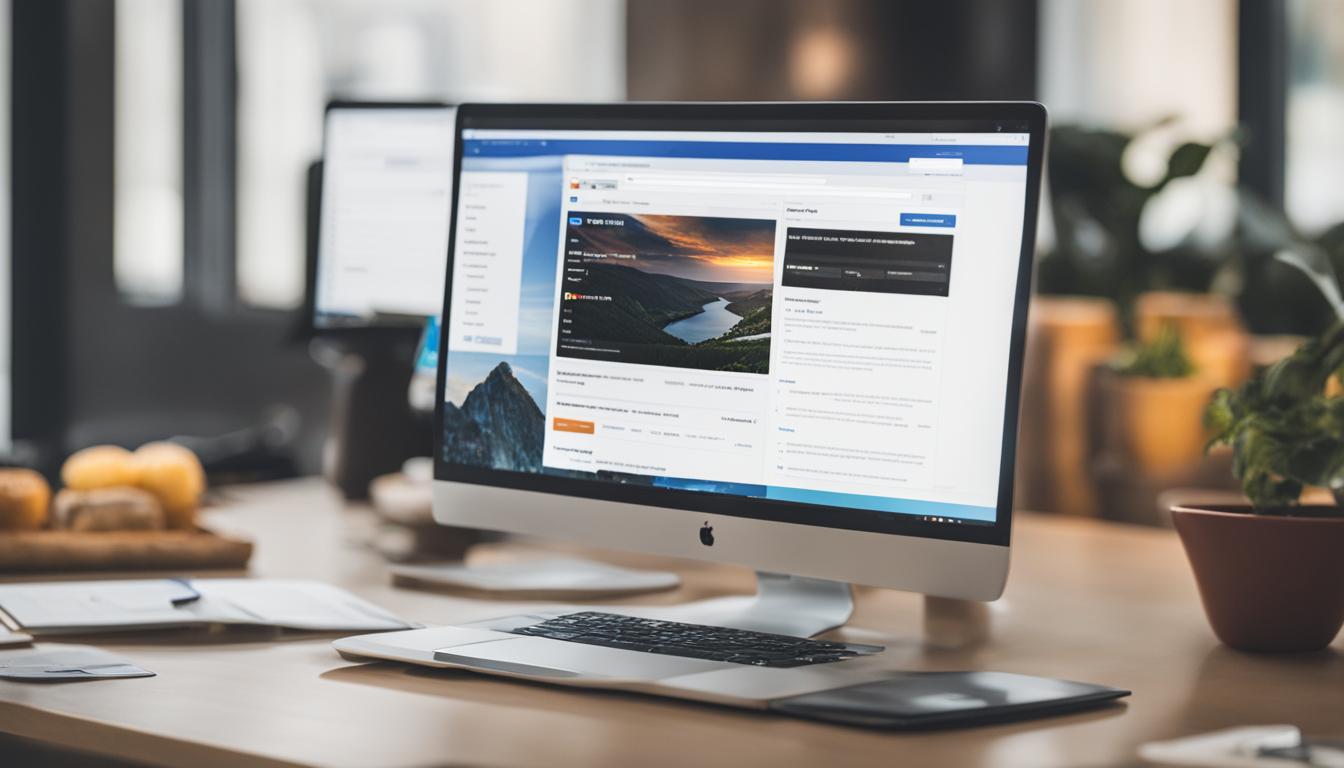You might be asking yourself, ‘SEO for vineyards? Is that exclusively for the big names?’
Well, we’re here to tell you that optimizing your online presence is just as crucial for small-scale wineries.
With our guide to SEO for small wineries, we’ll show you how to vinify your digital presence and stand out in the crowded online wine world.
From understanding keywords to building high-quality backlinks, we’ll help you master the art of SEO and boost your winery’s visibility.

Key Takeaways
- Optimizing a winery website for search engines is essential for attracting more visitors and increasing brand visibility.
- Creating high-quality and relevant content through blog posts, articles, and videos helps improve website visibility and establish the winery as an industry authority.
- On-page optimization, including meta tags, keywords, and well-structured URLs, is crucial for better search engine rankings.
- Building high-quality backlinks from reputable sources, such as wine blogs and industry directories, strengthens online authority and improves search engine rankings.
The Importance of SEO for Wineries
We believe that optimizing your winery’s website for search engines is crucial for attracting more online visitors and increasing your brand’s visibility. In today’s digital age, where consumers heavily rely on the internet to search for products and services, it’s essential for wineries to establish a strong online presence.
One important aspect of SEO for wineries is the importance of online reviews. Online reviews have become a significant factor in consumers’ decision-making process. Positive reviews not only build trust and credibility for your winery but also contribute to higher search engine rankings. Encourage your customers to leave reviews on popular review platforms such as Yelp or Google My Business. Responding to reviews, whether positive or negative, shows that you value your customers’ feedback and are actively engaged in providing excellent customer service.
Another crucial element in SEO for wineries is content marketing. Creating high-quality and relevant content helps to improve your website’s visibility in search engine results. By producing informative blog posts, articles, and videos about winemaking, wine tasting, and other related topics, you can attract more visitors to your website. Additionally, incorporating target keywords in your content helps search engines understand the relevance of your website to user queries. This, in turn, can lead to higher rankings in search engine results pages.
Understanding Keywords and Search Intent
To understand keywords and search intent, we must delve into how consumers use search engines to find information about wineries and their offerings. When someone searches for a winery, they often use specific terms or phrases to narrow down their search. These specific terms are known as long tail keywords. Long tail keywords are longer, more specific phrases that target a particular niche or audience. For example, instead of searching for ‘winery,’ a consumer might search for ‘organic winery in Napa Valley.’

Understanding the impact of long tail keywords on SEO is crucial for small-scale wineries. By incorporating these specific phrases into their website content, wineries can attract more targeted traffic. This targeted traffic is more likely to convert into customers, as they’re actively searching for the exact products or services that the winery offers.
In addition to long tail keywords, search intent also plays a significant role in optimizing website content. Search intent refers to the reason behind a user’s search query. By understanding the intent behind a search, wineries can create content that matches what the user is looking for. For example, if someone is searching for a winery tour, the winery can create a dedicated page or blog post that provides information about their tours.
Optimizing On-Page Elements for Better Rankings
When it comes to optimizing on-page elements for better rankings, there are a few key points to keep in mind.
First, meta tags and keywords play an important role in telling search engines what your page is about. By strategically incorporating relevant keywords into your meta tags, you can improve your chances of ranking higher in search results.

Second, the structure of your URL is also important. A well-structured URL that includes keywords can make it easier for search engines to understand and index your page.
Meta Tags and Keywords
For small-scale wineries looking to improve their online visibility, optimizing meta tags and keywords is crucial for achieving better search engine rankings.
Meta tags are snippets of text that describe the content of a webpage. They provide information to search engines about what the page is about.
Keywords, on the other hand, are words or phrases that users enter into search engines when looking for information. By conducting thorough keyword research techniques, wineries can identify the most relevant and popular keywords in their industry.

Once these keywords have been identified, they can be strategically placed in the meta tags of their webpages to signal to search engines that their content is highly relevant and should be displayed in search results.
URL Structure Importance
We optimize the URL structure of our small-scale winery website to improve on-page elements for better search engine rankings. Optimizing URLs is an important aspect of SEO that often gets overlooked. By following best practices for URL structure, we can ensure that our website is easily crawlable and indexable by search engines.
Here are some key best practices for optimizing URLs:
| Best Practices | Examples |
|---|---|
| Keep it short and descriptive | /wine-tasting-events |
| Use hyphens to separate words | /best-red-wines |
| Avoid using unnecessary parameters or numbers | /wine-cellar |
| Include targeted keywords | /organic-wines |
Building High-Quality Backlinks for Authority
As we delve into the topic of building high-quality backlinks for authority, it’s important to understand the impact they can have on the digital presence of small-scale wineries. Backlinks are like votes of confidence from other websites, indicating that your winery’s website is trustworthy and authoritative.

Here are three key strategies to consider when building backlinks organically:
- Content Marketing: Creating high-quality, informative content that’s relevant to your winery’s niche is a great way to attract natural backlinks. By sharing valuable information, you position yourself as an industry expert, making it more likely for other websites to link back to your content.
- Guest Blogging: Writing guest posts for reputable websites in the wine industry allows you to showcase your knowledge and expertise. In return, you can include a backlink to your winery’s website within the article or author bio. This not only drives traffic to your website but also boosts its authority.
- Influencer Collaboration: Partnering with influencers or industry experts can help you gain exposure and build high-quality backlinks. By collaborating on events, tastings, or content creation, you can leverage their audience and network to increase the visibility of your winery.
Building high-quality backlinks takes time and effort, but the rewards in terms of increased visibility and authority can greatly benefit your small-scale winery’s digital presence.
Creating Engaging and Shareable Content
To effectively enhance the digital presence of small-scale wineries, it’s crucial to create captivating and easily shareable content. In today’s fast-paced digital world, content curation and visual storytelling play a vital role in capturing the attention of your audience and encouraging them to engage with your brand.
Content curation involves carefully selecting and organizing relevant and valuable information to share with your audience. By curating content that’s informative, entertaining, or inspiring, you can position yourself as a trusted source of expertise in the wine industry. This not only helps build credibility but also encourages your audience to return for more.

Visual storytelling, on the other hand, allows you to communicate your winery’s unique story and personality through compelling visuals. Whether it’s through high-quality photographs, videos, or infographics, visual content can captivate your audience and make a lasting impression. It provides an opportunity to showcase your winemaking process, vineyards, events, and the people behind the scenes, creating a deeper connection with your audience.
Leveraging Social Media for Brand Awareness
When it comes to leveraging social media for brand awareness, there are several key strategies that we can implement.
One effective approach is collaborating with influencers in the wine industry to expand our reach and gain exposure to their followers.
Additionally, engaging with user-generated content allows us to connect with our audience and build a sense of community around our brand.

Lastly, targeted ad campaigns on social media platforms can help us reach our desired audience and increase brand visibility.
Influencer Collaborations for Exposure
We can enhance brand awareness by collaborating with influencers on social media platforms. Influencer collaborations have become a popular and effective way for small-scale wineries to reach a wider audience and increase exposure.
Here are three reasons why brand partnerships with influencers are crucial for digital marketing success:
- Reach a targeted audience: Influencers have a dedicated following that trusts their recommendations. By partnering with influencers who align with your winery’s values and target audience, you can tap into their existing community and gain exposure to potential customers who are already interested in wine.
- Authentic content creation: Influencers are experts in creating engaging and authentic content that resonates with their audience. When they share their experiences with your winery, it adds credibility and authenticity to your brand, helping to build trust and loyalty among their followers.
- Increased brand visibility: Collaborating with influencers allows your winery to gain visibility on various social media platforms, reaching a wider audience and increasing brand recognition. Influencers can create buzz around your winery by showcasing your wines, hosting giveaways, or featuring your winery in their content.
By leveraging influencer collaborations, small-scale wineries can significantly increase their brand awareness and reach a larger, targeted audience.

Now, let’s dive into the next section about user-generated content engagement.
User-Generated Content Engagement
Our engagement with user-generated content on social media platforms further amplifies our brand awareness and strengthens our digital presence.
User-generated content, such as reviews, comments, and testimonials, provides invaluable insights into the perception of our wines and allows us to interact directly with our customers.
By actively responding to user-generated content, we not only show our appreciation for their feedback but also demonstrate our commitment to customer satisfaction.

Additionally, user-generated content can serve as a powerful marketing tool, as positive reviews and recommendations from satisfied customers can influence potential buyers.
To measure the impact of user-generated content, we can track metrics such as likes, shares, and comments.
Increasing user engagement with our content can be achieved through various strategies, including hosting contests, encouraging user-generated content creation, and featuring customer stories on our social media platforms.
Targeted Ad Campaigns
To maximize brand awareness and reach a targeted audience, small-scale wineries can leverage social media platforms through targeted ad campaigns. By utilizing the powerful tools available on platforms like Facebook and Instagram, wineries can create ads that are specifically tailored to the interests, demographics, and behaviors of their desired audience. This allows them to effectively target potential customers who are more likely to be interested in their wines.

Here are three key strategies for running successful targeted ad campaigns:
- Ad targeting: Take advantage of the advanced targeting options offered by social media platforms. Specify the age range, location, interests, and even purchasing behaviors of your target audience to ensure your ads are shown to the right people.
- Ad optimization: Continuously monitor and analyze the performance of your ads. Test different ad formats, visuals, and messaging to find the combination that resonates best with your audience. Adjust your targeting parameters and budget allocation accordingly to maximize the effectiveness of your campaigns.
- Remarketing: Implement remarketing campaigns to reach potential customers who’ve already shown interest in your winery. By targeting users who’ve visited your website or engaged with your social media content, you can remind them of your brand and encourage them to make a purchase.
Mobile-Friendly Websites: A Must for Wineries
Implementing a mobile-friendly website is an essential step in establishing a strong online presence for small-scale wineries. In today’s digital age, more and more people are using their smartphones and tablets to search for information, make purchases, and connect with businesses. Therefore, it’s crucial for wineries to optimize their websites for mobile devices to ensure they’re reaching their target audience effectively.
When it comes to mobile optimization tips for wineries, responsive web design should be at the forefront. Responsive web design allows your website to adapt and adjust its layout and content to fit the screen size of various devices. This means that whether a visitor is accessing your site from their desktop, smartphone, or tablet, they’ll have an optimal viewing experience.
The importance of responsive web design for wineries can’t be overstated. Not only does it improve user experience, but it also has a positive impact on your search engine rankings. Search engines like Google prioritize mobile-friendly websites in their search results, making it easier for potential customers to find you.

Local SEO Strategies for Small-Scale Wineries
For small-scale wineries, utilizing effective local SEO strategies is crucial for establishing a strong digital presence. Local SEO focuses on optimizing a business’s online visibility for local searches. Here are three key strategies that small wineries can implement to improve their local SEO:
- Local Citations: Creating local citations is an important aspect of local SEO. A local citation is any mention of your winery’s name, address, and phone number (NAP) on other websites. It helps search engines verify the accuracy of your business information and improves your local search rankings. Make sure to list your winery on popular online directories such as Yelp, Google My Business, and TripAdvisor.
- Online Directories: In addition to local citations, listing your winery on online directories specific to the wine industry can greatly enhance your local SEO. These directories often have a high domain authority and can drive targeted traffic to your website. Look for directories that focus on wine and wineries, and ensure that your winery’s information is complete and up to date.
- Location-Specific Keywords: Incorporating location-specific keywords in your website content can help attract local customers. Use keywords such as ‘small-scale winery in [city name]’ or ‘best winery in [region name]’ to improve your visibility in local search results. Remember to optimize your website’s meta tags, headings, and content with these keywords to boost your local SEO efforts.
By implementing these local SEO strategies, small-scale wineries can increase their online visibility and attract more customers from their local area.
Now, let’s explore how to measure the success of your SEO efforts through analytics and reporting.
Measuring SEO Success: Analytics and Reporting
Now that we’ve explored the strategies for improving local SEO, let’s delve into how small-scale wineries can measure the success of their SEO efforts through analytics and reporting.

Tracking the success of your SEO efforts is crucial to understanding how well your website is performing in search engine rankings and identifying areas for improvement.
One of the most effective ways to measure SEO success is through SEO success tracking using analytics tools such as Google Analytics. These tools provide valuable insights into your website’s performance, including the number of visitors, bounce rate, organic search traffic, and conversion rates. By analyzing this data, you can determine which keywords are driving the most traffic to your site and adjust your SEO strategy accordingly.
In addition to tracking key metrics, it’s important to conduct regular SEO performance analysis. This involves reviewing your website’s performance over a specified period and comparing it to previous periods. By analyzing trends and patterns, you can identify what’s working well and what needs improvement. For example, you may notice that certain pages on your website are consistently ranking higher in search results, indicating that your SEO efforts for those pages are effective. On the other hand, if you notice a decline in organic search traffic, it may be a sign that your SEO strategy needs adjustment.
Avoiding Common SEO Mistakes for Wineries
To ensure optimal search engine optimization success for small-scale wineries, it’s crucial to avoid common SEO mistakes that can hinder the effectiveness of their digital presence. When it comes to winery website design and implementing SEO strategies, there are a few key mistakes that should be avoided at all costs:

- Neglecting mobile optimization:
With the majority of internet users accessing websites through their mobile devices, it’s essential for wineries to have a mobile-friendly website. Failure to optimize for mobile can result in a poor user experience and lower search engine rankings. - Ignoring keyword research:
Keywords are the foundation of any successful SEO strategy. By neglecting keyword research, wineries miss out on valuable opportunities to attract targeted organic traffic to their website. It’s important to identify the keywords that potential customers are using to search for wineries and incorporate them strategically throughout the website. - Overlooking SEO tools for wineries:
There are numerous SEO tools available specifically designed for wineries to optimize their digital presence. These tools can provide valuable insights into website performance, keyword rankings, and competitive analysis. By leveraging these tools, wineries can gain a competitive edge in the digital landscape.
Staying Up-To-Date With SEO Trends and Best Practices
Let’s talk about staying up-to-date with the latest SEO trends and best practices to ensure the success of your small-scale winery’s digital presence.
By keeping a finger on the pulse of the ever-evolving SEO landscape, you can leverage the latest techniques and strategies to improve your website’s visibility and drive more organic traffic.
Understanding the importance of mobile optimization is crucial in today’s digital age. With the majority of internet users accessing websites through their mobile devices, it is essential to ensure that your winery’s website is mobile-friendly. This includes having a responsive design, fast loading times, and easy navigation on smaller screens.
Implementing effective SEO strategies is another vital aspect of maintaining a strong online presence. This includes conducting thorough keyword research to identify the terms and phrases your target audience is using to search for wineries and wine-related topics. By incorporating these keywords naturally throughout your website’s content, meta tags, and headers, you can increase your visibility in search engine results.

Staying informed and proactive is key in maximizing your online presence. This involves regularly monitoring your website’s performance, tracking key metrics such as organic traffic, bounce rate, and conversion rates. By analyzing this data, you can identify areas for improvement and make data-driven decisions to optimize your website further.
Latest SEO Techniques
As small-scale wineries, we continually update our SEO techniques to stay current with the latest trends and best practices in order to optimize our digital presence. Keeping up with the ever-evolving world of SEO is crucial for staying ahead in the competitive online landscape.
Here are three advanced SEO techniques that we’re implementing to ensure our winery gets noticed:
- Voice search optimization: With the rise of smart speakers and voice assistants, optimizing our website for voice search is essential. We’re focusing on long-tail keywords and natural language to align with how people use voice search.
- Mobile-first indexing: As more people use their mobile devices to browse the internet, Google now prioritizes mobile-friendly websites. We’ve made sure our website is responsive and optimized for mobile devices.
- User experience optimization: Google places a high emphasis on user experience. We’re improving our website’s speed, navigation, and overall usability to enhance the user experience and boost our SEO rankings.
By staying up to date with the latest SEO trends and implementing advanced techniques, we’re able to increase our online visibility and attract more visitors to our winery website.

Now let’s dive into the next section and explore effective SEO strategies that will help us further enhance our digital presence.
Effective SEO Strategies
Staying up-to-date with SEO trends and best practices involves continually implementing effective strategies to enhance our digital presence as small-scale wineries. Understanding search algorithms and optimizing for voice search are two key areas that require our attention. It is crucial to stay informed about the latest updates and changes in search algorithms, as they directly impact our website’s visibility in search engine results. By staying updated, we can make necessary adjustments to our SEO strategies and ensure that our winery appears prominently in relevant search queries. Additionally, optimizing for voice search is becoming increasingly important as more people are using voice assistants like Siri and Alexa to search for information. By tailoring our content to accommodate voice search queries, we can capture a larger audience and drive more organic traffic to our website.
| Effective SEO Strategies | Benefits |
|---|---|
| Stay updated with search algorithms | Ensures website visibility in search engine results |
| Optimize for voice search | Captures a larger audience and drives more organic traffic |
Frequently Asked Questions
How Do I Choose the Right Keywords for My Winery Website?
To optimize our winery website for search engines, we need to choose the right keywords. What are the best practices for keyword research? It’s crucial to find relevant and high-ranking terms that align with our winery’s offerings and target audience.
What Are Some Effective Ways to Build High-Quality Backlinks for My Winery Website?
When it comes to building high-quality backlinks for our winery website, we’ve found that collaborating with influencers and guest blogging are effective strategies. Influencer partnerships help us gain valuable backlinks, while guest blogging expands our reach and credibility.

How Can I Create Engaging and Shareable Content for My Winery’s Online Presence?
Creating engaging and shareable content for our winery’s online presence is crucial. We’ve found that creating interactive wine tasting experiences and utilizing social media influencers for promotion greatly increase engagement and reach.
Is It Necessary for Wineries to Have a Mobile-Friendly Website?
Yes, it’s essential for wineries to have a mobile-friendly website. With the importance of social media marketing and the benefits of online booking systems for winery tours, a mobile-friendly site is crucial for success.
What Are Some Local SEO Strategies Specifically Tailored for Small-Scale Wineries?
To boost our local marketing efforts, we’ve focused on tailoring our SEO strategies specifically for small-scale wineries. By optimizing our social media presence and utilizing local keywords, we’ve seen a significant increase in online visibility.
Conclusion
In the ever-evolving digital landscape, small-scale wineries must embrace the power of SEO to thrive online.

Just as a well-crafted wine captivates the senses, a well-optimized digital presence captivates search engines and users alike.
By understanding keywords, optimizing on-page elements, building high-quality backlinks, and creating engaging content, wineries can rise above the competition.
Like a perfectly aged vintage, implementing local SEO strategies and measuring success through analytics ensures continued growth.
So, pour yourself a glass and toast to a fruitful digital future for your winery.











